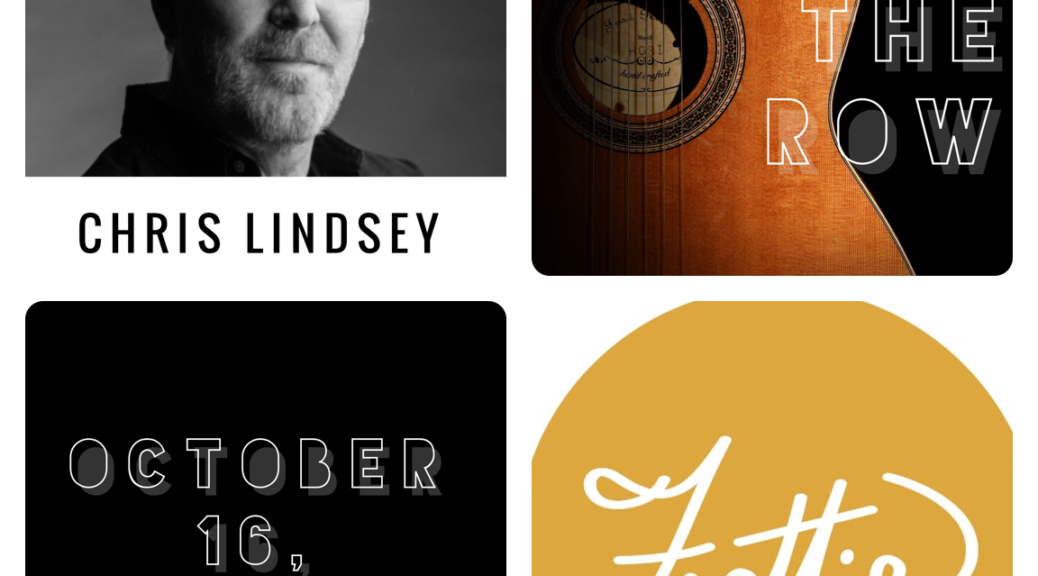Here’s golden advice from a #1 songwriter.
Chris is a Grammy-nominated songwriter and producer, and his cuts include “Amazed” by Lonestar, “Every Time I Hear That Song” by Blake Shelton, as well as cuts by Carrie Underwood, Keith Urban, Tim McGraw, The Civil Wars and more. He also has a great podcast called, “The Pitch List.”
Chris was a recent guest on Frettie.com’s “Know The Row,” and he shared some great, real-world advice for songwriters. Here’s some of what he had to say.
Read on!
________________________________
To BE a pro, you need to THINK like a pro, and this FREE ebook will help transform your thinking, your songwriting, and your success. Get it today!
_________________________________
Here is a bit of Chris’ advice (paraphrased):
You need to be writing edgy material, because it could be 6-8 years out from hitting the radio. “Every Time I Hear That Song” was 6 years old when it went #1 for Blake Shelton.
However honest you can be with yourself about your songs, that’s how far you can go in the music business. It’s key to honestly evaluate yourself and your music. Be vicious with yourself.
When you work with artists, you’re really trying to assist them.
If it’s not working, try something different- different cowriters, different style of writing, etc.
Songwriters tend to be precious with their songs- their babies. But if a producer passes on a song, it’s not personal. Your song just isn’t what they need at that time for that project.
No matter how much this town (Nashville) beats you up, if you can take a beating, you’ll come out of it… good. You’ll be a better writer.
If you just want to make money, there are easier businesses than the music business.
After your “finish” your song, play it in person for someone you respect. You’ll hear the song in a whole new way and find things you need to fix that you never noticed before. It’s hugely helpful.
Even if you come out of the gate with a hit, it doesn’t get easier. It’s always competitive. Even if you’ve written a hit, you have to write today’s song TODAY. You have to get today’s cut TODAY.
I tend to reject a song idea if there’s no “service” in that idea. As songwriters, we should be trying to add value to people’s lives. If a song doesn’t seek to serve others or add value, I’ll reject it. Value could be giving someone a smile after a hard week at work. Or value could be validating someone’s love. We make the most money by serving the most people.
Instead of being so focused on “writing up” (writing with big-name hit songwriters), you need to find YOUR people. Write together, stay together, form a wedge and bust through as a group.
If you’d like to hear EVERYTHING Chris had to share, the full video replay is available in Frettie’s Member Area. It’s right there along with full video replays of other events with hit songwriters, Byron Hill & Jimmy Yeary, music publisher Scot Sherrod, artist/writer Aaron Goodvin, and more.
If you want to join our next event live, “Know The Row” is a cool opportunity for us to hang out together (online) with a music industry pro. It starts off with a brief conversation between me and our guest, as he or she reveals information YOU need to know about the music biz. After that, we’ll open it up to YOUR questions.
This month, our guest is hit songwriter KENNA WEST! Kenna has had over 30 #1 singles in the gospel and southern gospel markets. She currently writes for Word Publishing. He’s has been nominated for multiple Dove Awards, multiple “Songwriter Of The Year” nominations (AGM, SGM), and over twenty “Song Of The Year” nominations. Artists who have recorded Kenna’s songs include Karen Peck & New River, Jeff & Sheri Easter, Marty Raybon, Brian Free & Assurance, and more.
This is something you do NOT want to miss!
This event will be on Thursday, November 29, from 7:30pm-8:30pm Central time.
Can’t make it to the live event? Every “Know The Row” is recorded and added to the Frettie Members Area. These videos are a resource for Frettie subscribers.
CLICK HERE TO GET ALL THE INFO.
God Bless and Enjoy the Journey,
Brent
Brent Baxter is a hit songwriter with cuts by Alan Jackson, Randy Travis, Lady Antebellum, Joe Nichols, Gord Bamford, Ruthie Collins, Ray Stevens and more. He’s written a top 5 hit in the US, a #1 in Canada, and a top 10 in Texas. His songs appear on 5 industry-certified gold & platinum albums & singles… so far. He also hosts a top-rated songwriting and music business podcast called, “The C.L.I.M.B.” which can be found on iTunes or your favorite podcast app.







